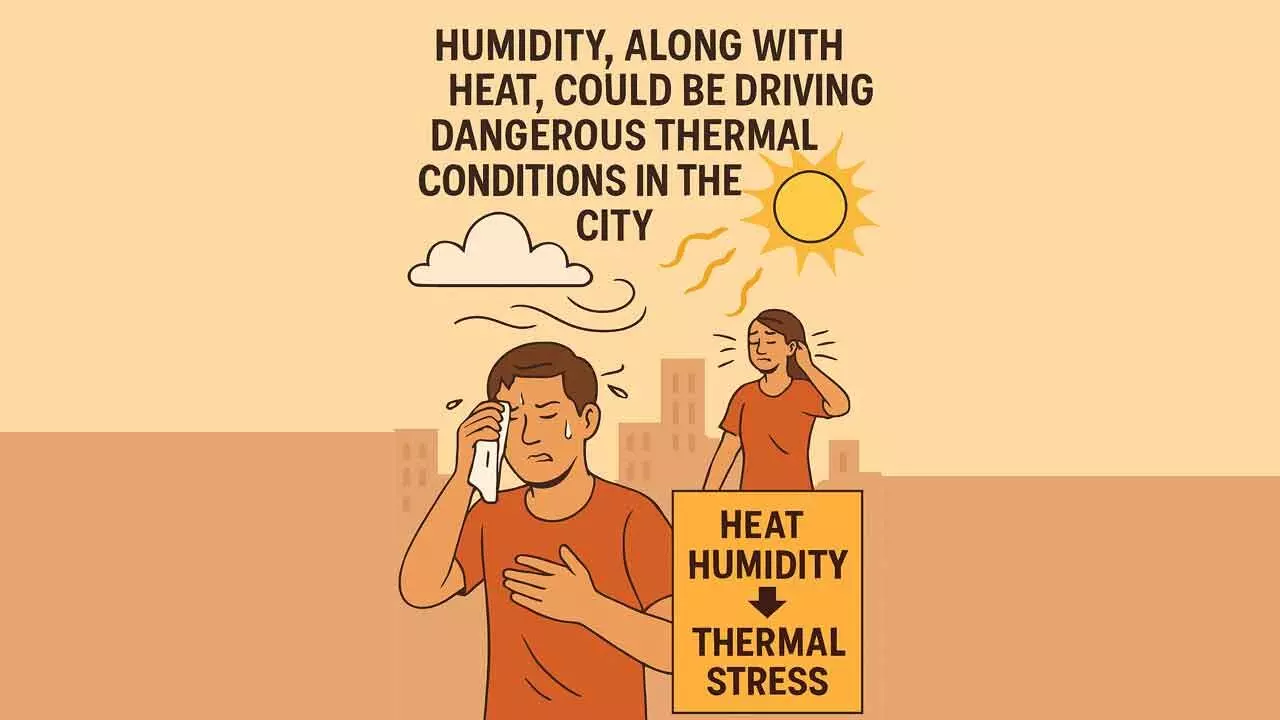Report links prolonged heat exposure with unrecognised deaths in Delhi
Humidity, along with heat, could be driving dangerous thermal conditions in the city
Report links prolonged heat exposure with unrecognised deaths in Delhi

Noting a trend of increasing deaths in June, July and August over the last 12 years in Delhi, a report highlights that a prolonged exposure to rising temperatures is linked with spikes in unrecognised deaths in the national capital.
Titled 'Death and Degree', the report published by Greenpeace India "reveals a clear connection between extreme heat and mortality in the city".
Authors looked at trends during 2015-2024 and stated that June to September consistently record high values of UTCI -- or 'universal thermal climate index', a measure of how one's body perceives heat outdoors -- even though air temperatures do not peak in these months.
"The months of July and August now feel as oppressive as the peak summer months, signalling a dangerous shift where the duration of heat stress is extending well into the monsoon season," the authors wrote.
Humidity, along with heat, could be driving dangerous thermal conditions in the city, they added.
Further, the team found that the trend of rise in deaths also aligned "disturbingly" with another dataset -- the city's unidentified deaths, often representing the most marginalised.
Deaths across June to August were found to be 5,341 in 2019, which rose to 11,819 during 2022-2024.
June -- also seen to record the most extreme UTCI -- consistently records the highest deaths each year, the authors noted.
They also found that a record number of homeless people (192) died because of heat strokes during June 11 to June 19 in 2024 -- the highest in two decades -- with the figures reflecting a "systemic failure" in protecting the city's most vulnerable against intense heat, the team added.

